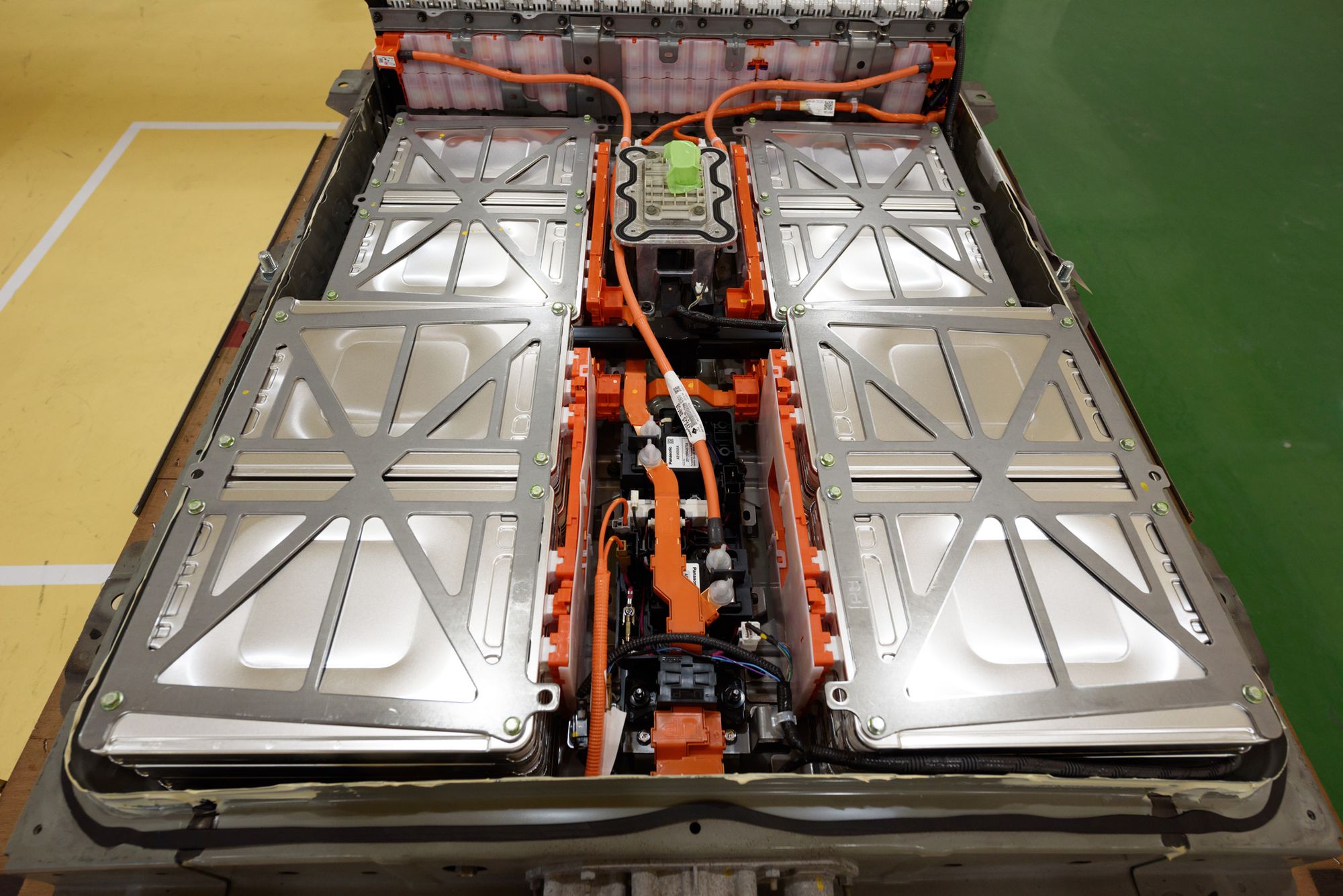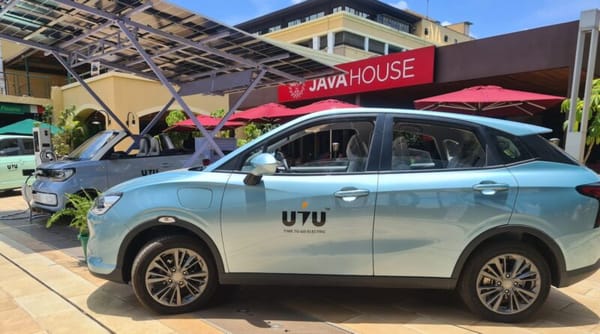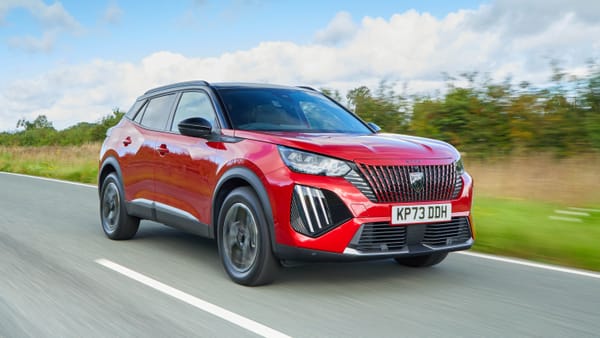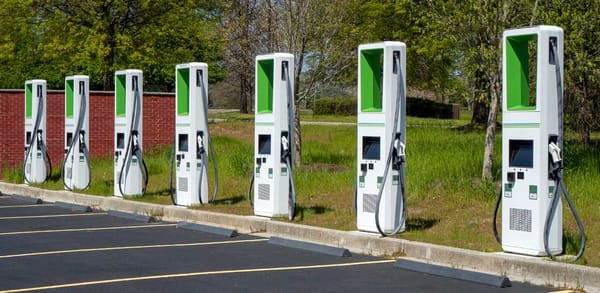How to stop EV battery from degrading
Batteries degrade when the electrodes deteriorate hence reducing the number of places for lithium ions to attach themselves. This means as a battery is charged and drained, the materials that make up the battery will slowly deteriorate.


Batteries degrade when the electrodes deteriorate hence reducing the number of places for lithium ions to attach themselves. This means as a battery is charged and drained, the materials that make up the battery will slowly deteriorate. This process occurs naturally over time, therefore reducing the amount of energy the battery is capable of storing.
However, electric vehicles degrade at a higher or lower rate depending on how you use and care for the vehicle. How long the battery lasts is dependent on you. Several tips will help you to extend your battery's lifespan and save yourself the time and money in purchasing a new battery or replacing the value altogether.
Batteries start their life with 100% State of health (SOH) and over time they deteriorate. For example, a 60kWh battery that has 90% SOH would effectively act like a 54 kWh battery. This is not the same with battery range ( range is the distance the vehicle can travel on kWh) which will fluctuate depending on several factors including charge level, topography, temperature, auxiliary use, driving habits and passenger or cargo load.
Geotab created the EV degradation tool to assess how batteries have been holding up and to consider the relative importance. The tool denotes that:
a)The degradation curves displayed the average trend line from data analyzed.
b) Graphs can offer insights into average battery health over time, but should not be interpreted as a precise prediction for specific vehicle
c) Subset of vehicles makes, models and years are not available in the visualization tool.
Here are some of the factors to be considered if you want your EV battery to last long;
1) Be conscious of your charging habits
You can opt to charge your EV at home or public charging spots, however, when you charge at home you will be saving few dollars as compared to charging outside. It is recommended not to fully charge your EV like it is expected to fill your convectional vehicles, nor should you start to recharge your electric car without power left that if you want to extend your battery's lifespan.
i) Avoid a full charge
Charging an EV battery to 100% always will reduce your battery lifespan, fully charge will corrode the aluminum collector and cause gasses to form within the batter hence resulting in internal mechanical stress. Eventually a battery degradation. To help prolong your battery lifespan recharge your EV up to 80%, the remaining 20% space will prevent you from putting too much stress on your EV. Also, it will for regenerative breaking that can convert kinetic energy to useable energy. Most of the time, if the battery is fuller than 80% the vehicle will automatically disable this important feature.
ii) Quit deep discharging
You should never drain your battery until it reaches 0%. When you deep charge your battery pack will result in excessive wear and tear hence degrading the copper which is a current collector and transition metals. Once your EV drops to 10-20% plug it in so it doesn't sit with a low charge for a long time.
iii) Do not fast charge
You might think of juicing up your EV to run errands using the DC fast charger option. Fast charging can allow your battery to reach 80 % capacity in 20-60 minutes. It can degrade your battery and shorten its lifespan by repeatedly stressing the vehicle's mechanical components.
2) Know the weather seasons
Extreme weather and temperature can shorten the lifespan of your EV battery. There is a rule of thumb that if the climate is uncomfortable for you it's also probably stressful on your car. It's important to control the climate in which you park, store and charge your EV.
iv)Park your EV under shade
Excessive exposure to sun and heat during summer takes a toll on your EV battery. When the temperature rises to 90 degrees Celsius which is equivalent to 32 degrees Celsius The heat threatens to melt the separator, dissolve cathode metals and decompose the electrolyte. If you want to park your car for a longer period try to park in the shade to slower down the damage rate. You can opt to store your EV in your garage when you not using it to prevent it from overheating. Sometimes the temperatures can go up in your garage during summer so its better to improve your insulation or even install a celling fan to maintain a moderate temperature.
v) Avoid driving in cold
Just like extreme heat can damage the battery so does the cold. Very cold temperatures can reduce battery range by more than 40% when running interior heaters. Therefore it's advisable to store your EV in a regulated area during the winter season or plug it in the charger when it is chilly.
vi) Make use of the thermal management systems
To manage the climate and the lifespan of the battery manufacturers include thermal management systems in the EVs when manufacturing them. Running the thermal system while the car is parking will not drain the battery. However, if you simultaneously charge the EV the system runs continually at no expense to the battery. Thus, the safest place for your EV during cold weather is with its charger in your garage.
3.Manage speed and settings
Driving uphill and excessive speeds will put unnecessary strain on your EV batteries. Off-road trips or street racing will shorten the battery life.
vii) use mountain mode
Vehicles strain while driving uphill. However, EVs using battery power to climb steep hills can lead to discharge which is a threat to the battery lifespan. For example, Chevy volt has a mountain mode hence advisable to turn it on when driving uphill, this does not apply to all fully electric vehicles mostly on a plug-in hybrid.
viii) Slow down
Your EV is not for racing competition, doing races will not be helping the battery either. Driving over 70 miles per hour could deplete your battery faster. Take the road less traveled, ride in the slow lane and take in the scenery to best conserve the EV's battery.
ix) Plan your route
The best way to manage your speed is to plan the route that you want to drive along before leaving home. By doing so it will help you avoid hilly terrain or roadways with higher maximum speed limit. Additionally, you can find a route which you might recharge, the drive will be less stressful for you as a driver as well as your vehicle.
Source:
Dylan. B (2020) 9 Proven tips to extend your EV battery lifespan & prevent battery degradation.




